Reward Deficiency Syndrome Treatment
Reward deficiency syndrome treatment. Ultimately the pursuit of pleasurable rewards may become a potent form of self-medication. Chiropractic Complementary Medicine modality to assist with issues of craving withdrawal pain deficiency of brain reward and improvement of client retention rates and improvement of. Some holistic addiction therapists can specifically help you deal with reward deficiency syndrome.
Journal of Psychoactive Drugs. We use advanced methods and high-level genetic testing to provide excellent insight to reward deficiency syndrome. The use of certain supplements and therapeutic methods can speed up the process of recovery.
Reward-Deficiency Syndrome Treatment. Utilizing natural dopaminergic repletion therapy to promote long term dopaminergic activation will ultimately lead to a common safe and effective modality to treat Reward Deficiency Syndrome RDS behaviors including Substance Use Disorders SUD Attention Deficit Hyperactivity Disorder ADHD Obesity and other reward deficient aberrant behaviors. In fact dependent brains exhibit similar dysregulation of the dopamine reward system.
However RDS has illuminated numerous new and novel treatment approaches such as precision brain gene variation matched neuronutrient pro-dopamine regulator therapy restoreGen. A Biogenetic Model for the Diagnosis and Treatment of Impulsive Addictive and Compulsive Behaviors November 2000 Journal of. Unfortunately it takes a long time for these symptoms to disappear.
A biogenetic model for the diagnosis and treatment of impulsive addictive and compulsive behaviors. Enhance brain reward functional connectivity volume and target reward deficiency and the stress-like anti reward symptomatology of addiction. Reward deficiency syndrome.
Fortunately there are some evidence-based pharmacological options that you can try if you have RDS. Activation instead of blocking mesolimbic dopaminergic reward circuitry is a preferred modality in the long term treatment of reward deficiency syndrome RDS a commentary 2008 Reward deficiency syndrome. PubMed NCBI.
Amino-acid therapy compounds work in synergy to support brain reward function in the aim to induce dopamine homeostasis and is best described as a Glutaminergic-Dopaminergic Optimization. Researchers suggest that dopaminergic agonists such as bupropion bromocriptine and n-propylnor-apomorphine may be helpful in certain cases of reward-deficiency syndrome.
Amino-acid therapy compounds work in synergy to support brain reward function in the aim to induce dopamine homeostasis and is best described as a Glutaminergic-Dopaminergic Optimization.
Utilizing natural dopaminergic repletion therapy to promote long term dopaminergic activation will ultimately lead to a common safe and effective modality to treat Reward Deficiency Syndrome RDS behaviors including Substance Use Disorders SUD Attention Deficit Hyperactivity Disorder ADHD Obesity and other reward deficient aberrant behaviors. A biogenetic model for the diagnosis and treatment of impulsive addictive and compulsive behaviors. Unfortunately it takes a long time for these symptoms to disappear. Amino-acid therapy compounds work in synergy to support brain reward function in the aim to induce dopamine homeostasis and is best described as a Glutaminergic-Dopaminergic Optimization. A biogenetic model for the diagnosis and treatment of impulsive addictive and compulsive behaviors. Enhance brain reward functional connectivity volume and target reward deficiency and the stress-like anti reward symptomatology of addiction. Whereas traditional treatment modalities such as medication psychotherapy and social support remain the mainstay for most people they are by design symptom reduction strategies. Psychoactive Drugs 32 S1112. 32 The Reward Deficiency Syndrome.
A Biogenetic Model for the Diagnosis and Treatment of Impulsive Addictive and Compulsive Behaviors November 2000 Journal of. The Reward Deficiency Syndrome. Psychoactive Drugs 32 S1112. 32 The Reward Deficiency Syndrome. Whereas traditional treatment modalities such as medication psychotherapy and social support remain the mainstay for most people they are by design symptom reduction strategies. Reward deficiency syndrome that is caused by addictions will often disappear with time. Amino-acid therapy compounds work in synergy to support brain reward function in the aim to induce dopamine homeostasis and is best described as a Glutaminergic-Dopaminergic Optimization.







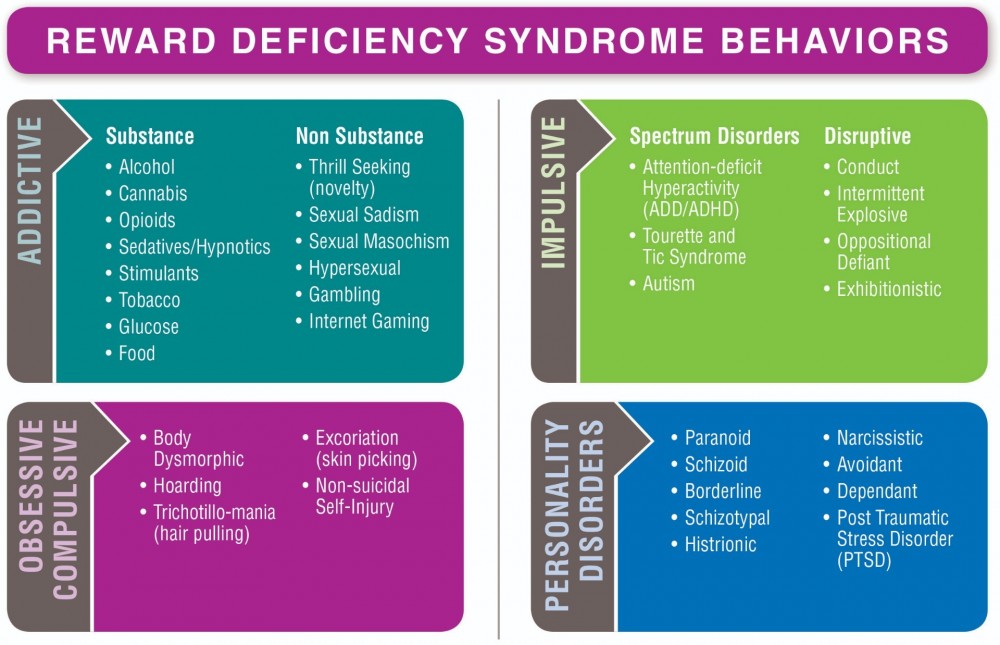
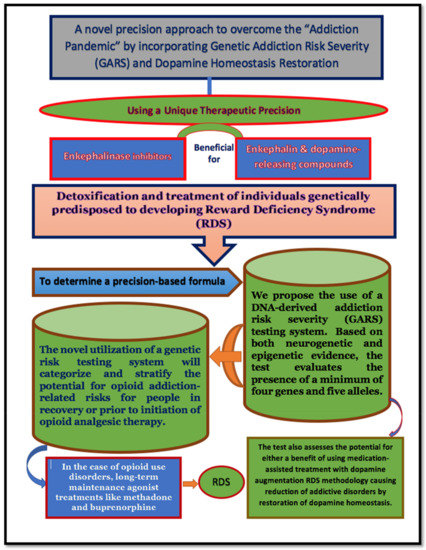


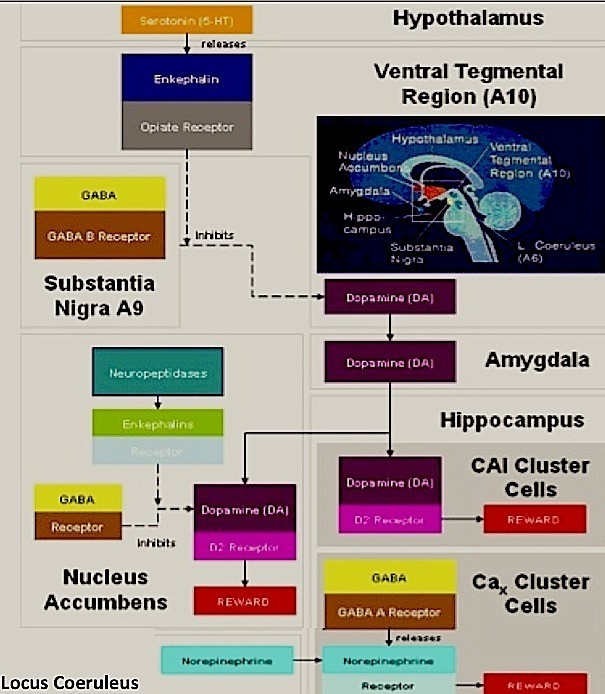




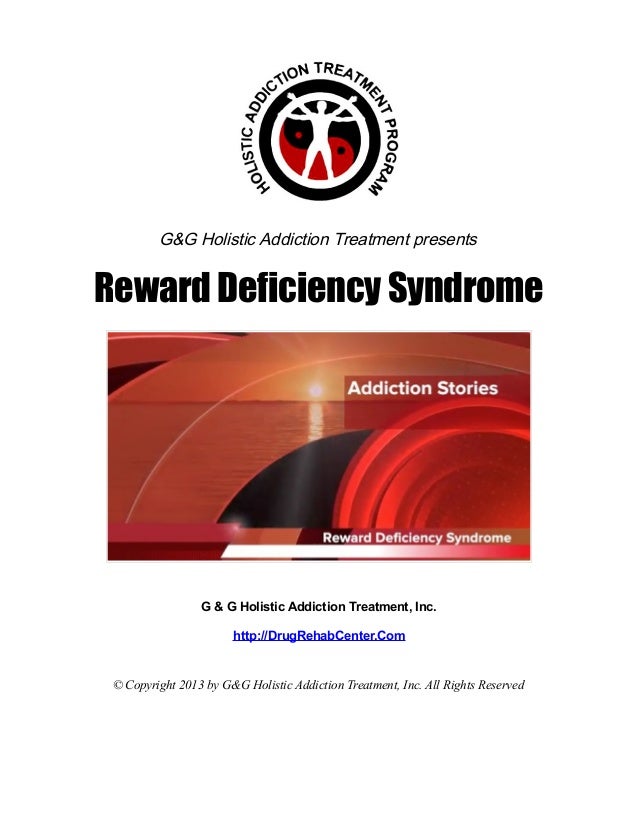




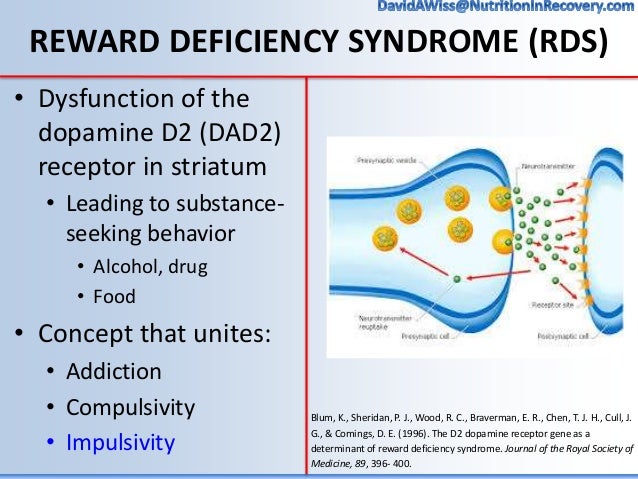
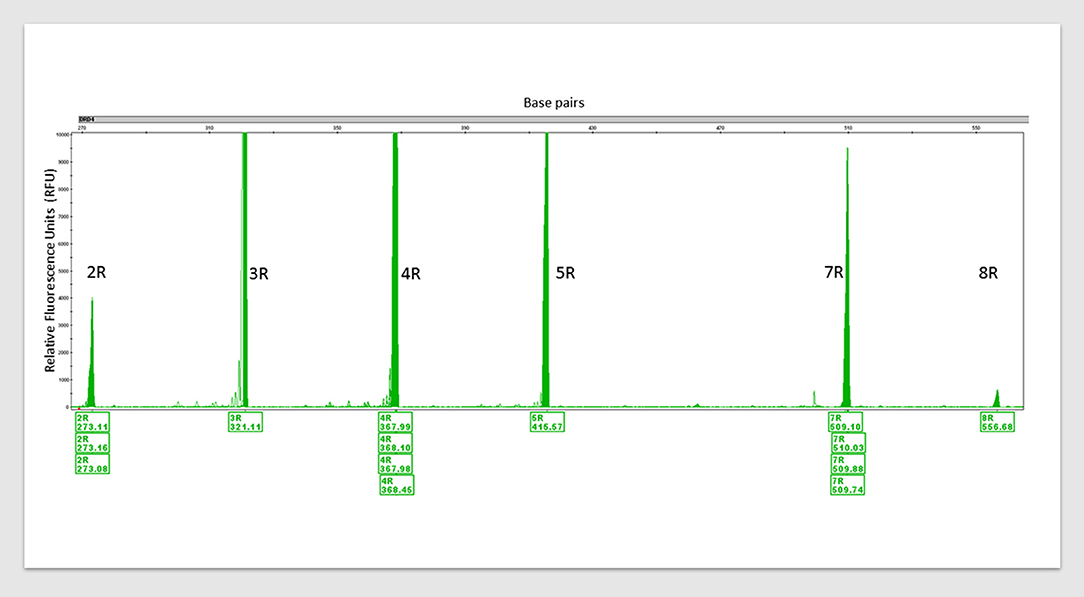




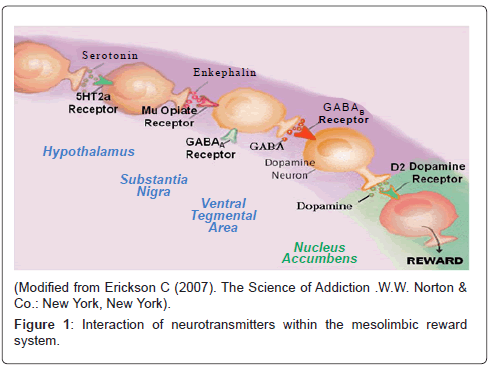


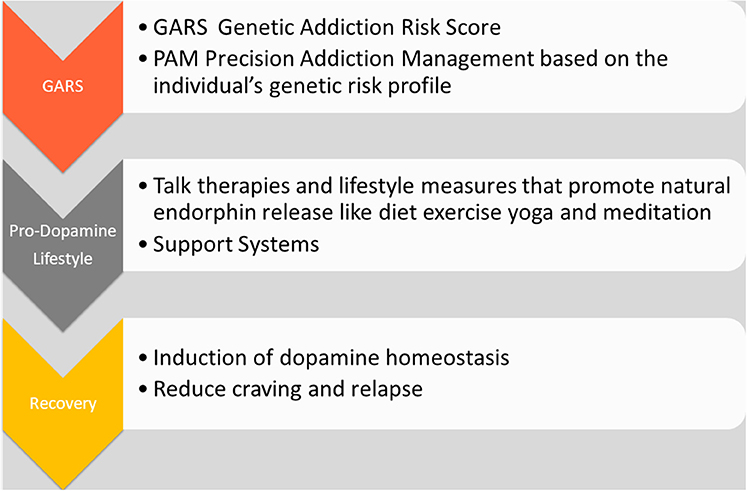

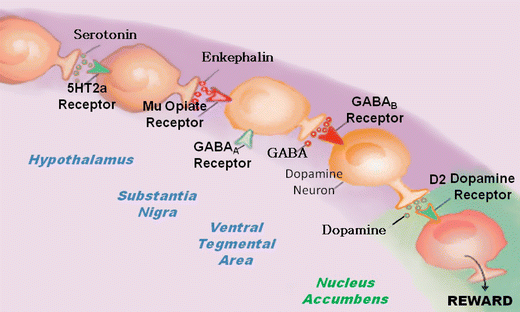


Post a Comment for "Reward Deficiency Syndrome Treatment"